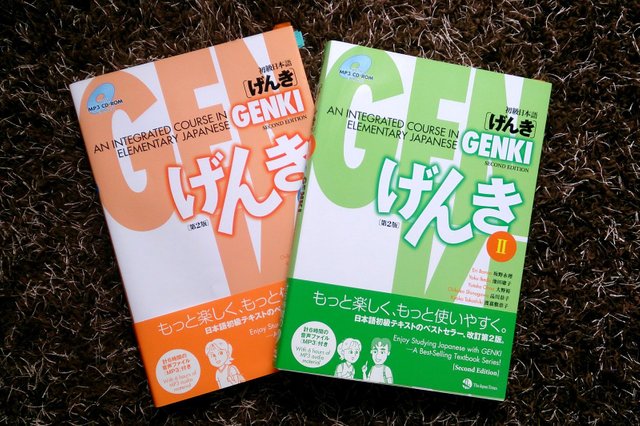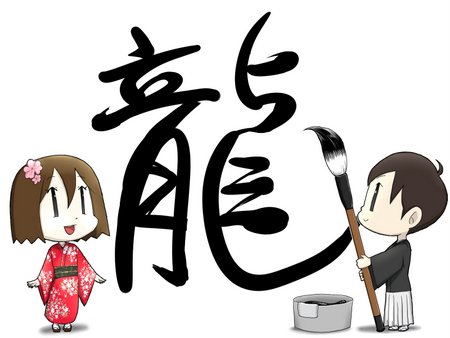Best Resources To Learn Japanese
Obviously the best for you is all a matter of opinion, but the resources I will choose here are what many college level programs and actual people in Japan are using to learn the Language today. The main things you want to focus on are grammar, vocabulary and Kanji. While you can get all these things in the textbooks I will mention, they lack a level of efficiency that other programs and phone applications can provide. Also remember resources are only as good as the person who has them, takes advantage of them. Like every language, the key is to practice, and if you are learning on your own you need to do the best to go out of your way to talk to Japanese people, whether it be a tutor online or a penpal, interaction is key.
What About Rosetta Stone?
Before I talk about what resources I think you should use, I am going to say that I don’t particularly recommend Rosetta Stone for Japanese, primarily because a massive part of Japanese is learning the grammar, sentence structures and the writing system which Rosetta Stone lacks. However if you have Rosetta Stone through work or another method, it isn’t bad for learning vocab, but I would only use it after you used the textbooks that I recommend in the next section.
Textbook/Workbooks
Hands down one of the best if not the best textbook and workbook combination is the Genki I and Genki II combo. Hypothetically, if you master each textbook you would be at the conversational level of Japanese and could survive day to day live in Japan. They provide a very good basis for grammar, vocabulary and Kanji, the only problem is that sometimes vocab isn’t reused as much as it should be so it is easy to forget early on words, but if you study each book thoroughly you will get a basic grasp of the language. There is also a workbook for each of the Genki books that is filled with homework to test yourself on the subject. Included as well is audio CD’s and Listening comprehension homework to try to expose you to hearing and understanding auditory queues.
There is also emphasis on cultural Japanese versus formal, which is a huge deal in Japanese. You could hypothetically understand formal Japanese, but when talking to friends, struggle to understand them because conjugations of verbs, adjectives, ect change. Speaking of Conjugation, verb conjugation can be a huge problem for learners of the language because there are so many ways to conjugate one verb. A great site for help is (http://www.japaneseverbconjugator.com/). I use it almost everyday while doing my homework for verbs im confused about. While the workbooks do a good job at grammar and vocab, I wouldn’t recommend it for Kanji. The Kanji it provides you is very good, but writing it over and over again can be tedious and not the most efficient so I will go into how most people do it next.
Learning Hiragana, Katakana and Kanji
The Japanese writing system in my opinion, is the hardest part of learning Japanese. Hiragana and Katakana, the two main alphabets can be learned in a day or two, but Kanji takes a VERY long time to master. Even Japanese citizens for the most part don’t know all of them, as many are very specialized and aren’t required for everyday life. The ones that are required for everyday living though are necessary to read signs, flyers, ect.
The best method I have found is to take the Kanji in Genki 1 and 2 , put them into quizlet and just use their flashcard feature. This works very well for remembering the Kanji when you see them, but does admittedly, fall flat when trying to actually remember how to write them. If you have your heart set on writing the kanji without using a program like word ( which will change the hiragana to the appropriate Kanji) , then it comes down to really just writing it over and over. Its dull boring, but it is unfortunately necessary. Another good method that people have recommended is Anki which is a memory program that does something similar to quizlet, but helps you remember old vocab, just take in mind the app is about $25 I believe, while quizlet is free. Both of them have smart phone apps and websites that can be used so check both of them out here. (http://ankisrs.net/) (https://quizlet.com/)
Audio Learning
Audio learning is the hardest part because I highly recommend talking to someone over skype or if possible, in person. If you absolutely cannot meet someone in person to talk, then there are some great options online that aren’t too expensive and will definitely help you learn to speak and listen to the language better. I used both in person and online tutors, which were helpful. I would not recommend having them teach you grammar or other things, but just talk to you for an hour at a time. Because usually an hour is all they have and you don’t want to spend a fortune on tutoring, you should use them primarily to practice speaking. If you want to find a tutor in your area I found mine through (https://www.wyzant.com/) while I used (https://www.verbling.com/) to find an online tutor. There are a plethora of sites though, so whatever you choose that connects you with another person is probably okay.
In conclusion, Japanese like anything takes time and a lot of effort to master. There aren’t a massive amount of resources here, but you really don’t need a large amount of resources, just the will power to study and work hard at the ones I have given you. I can really only speak conversational Japanese, so I am not extremely knowledgeable on where to go after the Genki books, but they provide a very good base and fundamentals for Japanese. If you have any other questions feel free to ask below!
-Calaber24p


There's nothing like taking 5 semesters of japanese in college, then going to japan and being functionally illiterate because they don't teach kanji.
Really? What a waste!
I'm sorry :-(
I've seen those at our local BookOff store. I'll check it out. I have also been using this program called Memrise. It has a small subscription fee but it has worked ok for me. Arigato gozaimasu!
Memrise is also a good program. For me quizlet just worked best for my class.
i wouldn't mind learning some.. great post~!
Did you ever learn any?
This post has been ranked within the top 25 most undervalued posts in the first half of Nov 17. We estimate that this post is undervalued by $11.76 as compared to a scenario in which every voter had an equal say.
See the full rankings and details in The Daily Tribune: Nov 17 - Part I. You can also read about some of our methodology, data analysis and technical details in our initial post.
If you are the author and would prefer not to receive these comments, simply reply "Stop" to this comment.
Thank you for this post! ありがとうございます!I was learning Japanese at Gothenburg University in Sweden and at GenkiJACS language school in Tokyo. Both used Genki I and Genki II. I loved that textbook! My biggest challenge with Japanese at the moment is to retain what I’ve learnt in the previous years and to be steadily learning more Kanji. がんばって!
The best way to learn is to ignore what they say about it being easier for kids to learn languages and decide not to speak any other language at all besides your target for at least a month study a lot but speak more. Also "I'm not good at languages" is only true as long as you believe it.
A good textbook is useful to guide your progress and you are right to recommend Genki, it's the best! :-D
Hello, I am currently studying both Genki books, and I noticed you recommended Anki for memorization.
I was considering purchasing both the Kanji and vocabulary apps ($5.99 each). Have you tried out any of the official Genki apps on mobile devices?